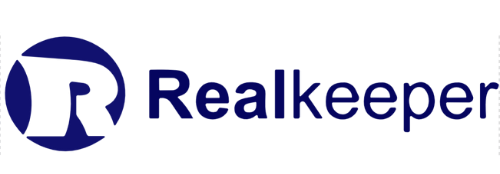
Managing finances can be daunting in today’s fast-paced healthcare environment. With the complexity of billing, insurance claims, payroll, and patient accounts, healthcare organizations need a streamlined approach to ensure efficiency. This is where the best healthcare accounting software in 2024 comes into play. Designed specifically for the unique needs of healthcare facilities, this software helps maintain accurate financial records, ensuring compliance, and improving overall economic health. In this blog, we’ll explore the importance of the best healthcare accounting software in 2024 and how Realkeeper’s solutions can perfectly fit medical institutions.
Table of Contents:
- Introduction to Healthcare Accounting
- The Unique Needs of Healthcare Accounting
- Key Features of Healthcare Accounting Software
- Benefits of Using Healthcare Accounting Software
- How Realkeeper Supports Healthcare Facilities
- Selecting the Right Software for Your Healthcare Institution
- Future Trends in Healthcare Accounting Software
- Conclusion
1. Introduction to Healthcare Accounting
Healthcare accounting is significantly more intricate than traditional business accounting. It involves managing patient bills, processing insurance claims, complying with government regulations, and handling payroll for medical staff. The demand for precise accounting practices is paramount in the healthcare industry, as even the slightest errors can result in compliance issues or financial losses.
Healthcare facilities—ranging from hospitals and clinics to nursing homes and private practices—are constantly under pressure to maintain profitability while delivering top-tier care. Managing these operations requires robust accounting systems that can streamline financial processes, handle massive amounts of data, and maintain compliance with industry regulations.
2. The Unique Needs of Healthcare Accounting
Healthcare organizations face unique accounting challenges that distinguish them from other industries. These include:
- Complex Billing Systems: Healthcare accounting involves a wide variety of billing scenarios, from direct patient payments to third-party payers like insurance companies. In some cases, patients are billed after the service has been provided, which complicates tracking and revenue recognition.
- Insurance Claims and Reimbursements: Healthcare facilities often work with multiple insurance providers, and each provider may have different reimbursement rules. Managing these varying systems manually is extremely time-consuming.
- Compliance with Regulations: Healthcare organizations must follow regulations such as the Health Insurance Portability and Accountability Act (HIPAA) and the Affordable Care Act (ACA). Non-compliance can lead to severe penalties.
- Payroll and Staff Management: Payroll in healthcare is complex due to varying work schedules, overtime, and specialty payments for professionals like doctors and nurses.
- Inventory Management: Healthcare institutions need to track medical supplies and equipment, ensuring they are available when needed, but not overstocked, which could tie up capital unnecessarily.
Given these complexities, healthcare accounting software is no longer a luxury but a necessity.
3. Key Features of Healthcare Accounting Software
Effective healthcare accounting software must include the following features to address the specific challenges of the industry:
- Automated Billing and Invoicing: Automation simplifies the process of generating and sending invoices, reducing human error, and ensuring prompt payments.
- Insurance Claim Management: Integrated systems help track claims, manage approvals and denials, and expedite payments from insurance companies.
- Compliance Monitoring: The software should have built-in mechanisms to ensure compliance with relevant healthcare regulations and standards.
- Financial Reporting: Real-time financial reporting tools provide healthcare administrators with insights into their organization’s financial health, allowing for timely decision-making.
- Expense Tracking and Budgeting: Managing expenses is critical in healthcare. Software that tracks costs associated with medical equipment, staff wages, and facility operations helps in budget planning and reducing wastage.
- Payroll Management: Ensuring that payroll is accurate, timely, and meets healthcare-specific needs (like handling shifts, overtime, and benefits) is crucial.
- Inventory Management: Track and manage medical supplies, pharmaceuticals, and equipment. This feature helps minimize loss and waste, ensuring that critical resources are always available when needed.
4. Why we need the best healthcare accounting software in 2024
The advantages of incorporating healthcare accounting software into a healthcare organization are substantial, and they affect not only the financial department but the overall operational efficiency of the institution.
A. Improved Accuracy and Efficiency
Manual data entry is prone to errors, especially when dealing with complex medical bills and insurance claims. By automating these processes, healthcare accounting software significantly reduces mistakes, leading to more accurate financial records.
B. Enhanced Compliance
Healthcare is one of the most highly regulated industries. The right accounting software ensures compliance with laws like HIPAA and other government regulations, reducing the risk of audits, fines, and legal issues.
C. Better Financial Transparency
Financial transparency is crucial for the long-term success of healthcare facilities. Detailed financial reports generated by the software can provide valuable insights into revenues, expenses, and profit margins, allowing decision-makers to manage resources more effectively.
D. Faster Payment Processing
Integrated payment gateways and invoicing tools ensure that payments are processed quickly and efficiently. This not only improves cash flow but also enhances patient satisfaction by reducing billing errors and delays.
E. Scalability
Whether you’re a small clinic or a large hospital, healthcare accounting software can be scaled according to your needs. As your organization grows, the software can handle increasing amounts of data without compromising performance.
F. Time Savings
By automating time-consuming tasks such as payroll, invoicing, and compliance reporting, healthcare accounting software frees up valuable time for administrators and financial managers, allowing them to focus on more strategic initiatives.
5. How Realkeeper Supports Healthcare Facilities
Realkeeper’s healthcare accounting solutions are tailored specifically for healthcare providers, ensuring that every aspect of financial management is covered. Our software combines the essential features of traditional accounting with industry-specific functionalities to ensure seamless operation.
A. Industry-Specific Solutions
Realkeeper’s healthcare accounting software is designed to address the unique challenges of the healthcare industry. Whether it’s managing complex billing cycles, tracking insurance reimbursements, or ensuring regulatory compliance, Realkeeper provides a complete solution.
B. User-Friendly Interface
One of the most critical aspects of healthcare accounting software is ease of use. Realkeeper ensures that even non-technical staff can use the software with minimal training, reducing administrative burdens and increasing productivity.
C. Customizable Modules
Realkeeper offers customizable modules that cater to different healthcare facilities, be it a large hospital or a small clinic. You can pick and choose the features most relevant to your organization, ensuring you don’t pay for unnecessary functionality.
D. 24/7 Customer Support
We understand the importance of having reliable software, especially in an industry as critical as healthcare. Realkeeper offers 24/7 customer support to ensure that any issues are resolved quickly, minimizing downtime.
E. Data Security
Data security is a significant concern in healthcare. With Realkeeper, you can be assured that your data is encrypted and stored securely, meeting HIPAA and other regulatory requirements.
6. Selecting the Right Software for Your Healthcare Institution
Choosing the right healthcare accounting software is a crucial decision. Consider the following when selecting the software that fits your needs:
- Assess Your Organization’s Needs: Identify the specific accounting challenges your healthcare facility faces. Are you dealing with complex insurance claims? Do you need better expense management? Choose a software that directly addresses these pain points.
- Look for Scalability: As your facility grows, so will your financial data. Choose software that can scale with your organization, adding features or capacity as needed.
- Check for Compliance Features: Make sure that the software is up-to-date with healthcare regulations and can handle compliance reporting efficiently.
- Evaluate User Experience: An intuitive interface will make it easier for staff to adopt the software and use it effectively. Request a demo or trial to evaluate how user-friendly the system is.
- Consider Integration Capabilities: The software should integrate with other healthcare management systems you are using, such as electronic health records (EHR) or practice management software, to avoid duplication of effort.
7. Future Trends in Healthcare Accounting Software
As healthcare continues to evolve, so does the technology supporting it. Here are a few trends shaping the future of healthcare accounting software:
A. Artificial Intelligence and Machine Learning
AI and ML are transforming accounting by automating complex tasks like predictive analysis and fraud detection. In healthcare, this technology can help identify billing errors, forecast revenue trends, and automate compliance monitoring.
B. Blockchain Technology
Blockchain has the potential to revolutionize how healthcare institutions handle sensitive data. In accounting, blockchain can provide secure and transparent ways to record transactions, ensuring the integrity of financial records.
C. Cloud-Based Solutions
Cloud-based healthcare accounting software is becoming more popular due to its accessibility and scalability. It allows healthcare organizations to store large amounts of data securely while accessing it from any location.
D. Mobile Integration
Mobile-friendly software is essential for on-the-go healthcare professionals. The ability to access financial data from mobile devices improves flexibility and ensures that healthcare administrators can make decisions in real time.
8. Conclusion
Healthcare accounting software is an essential tool for managing the complex financial operations of healthcare organizations. With features designed specifically for the industry, these systems offer more than just basic accounting functions. They enhance accuracy, ensure compliance, improve cash flow, and provide valuable financial insights that enable healthcare providers to focus on delivering quality care.
Realkeeper’s healthcare accounting solutions are tailored to meet the specific needs of medical institutions, from small clinics to large hospitals. By integrating advanced functionalities like automated billing, insurance claim management, and compliance monitoring, Realkeeper ensures that healthcare facilities operate efficiently and profitably.
As healthcare continues to evolve, adopting the right technology will be key to staying ahead. Invest in healthcare accounting software today to ensure that your financial operations are as robust as the care you provide.



